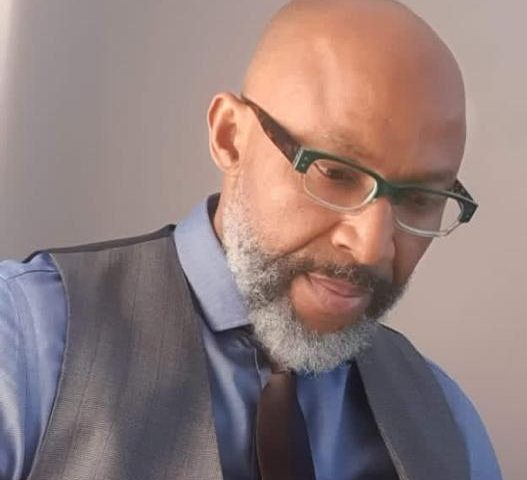The yoke of underdevelopment around Africa’s neck has not diminished its immense potential to transform its own and the global economy. The continent’s greatest asset remains its young population, the world’s largest, with over 60 percent of its entire population under 25. But to unlock this potential, education is key.
Rebecca Winthrop, Co-director, Center for Universal Education and Senior Fellow, Global Economy and Development, reckons that ensuring high-quality education opportunities for all Africa’s children and youth that prepare them for the 21st century world is “not only the right thing to do — children everywhere have a right to a quality education — but is also the smart thing to do”.
“The growth in the world’s labor market is in Africa. As other parts of the world begin to age, Africa will grow its population and today’s children will be the talent tomorrow’s global companies will be recruiting. In the next 30 years, it is projected that sub-Saharan Africa’s working-age population will increase more than twofold — accounting for 68 percent of the world’s total growth. Economists have shown that when controlling for other factors, increasing girls’ and boys’ years of schooling (and the skills they learn while there) has a positive effect on economic growth,” Winthrop says.
The education Africa needs can no longer be education for its own sake. Winthrop’s reference, clearly, is to “high-quality education” that prepares Africa’s children and youth “for the 21st century world”. Miranda Meents, PhD Candidate in Botany at the University of British Columbia (UBC), in a blog post “How Education Changes The World”, reckons that the goal of education shouldn’t necessarily be to achieve a “higher state of knowledge” but “we should work to equip our students with the tools they need to go out into the world and shape it for themselves”.
In other words, for Africa to produce the pool of talent it needs for its own internal development, the pool of workforce that tomorrow’s global companies will recruit, the education of the continent’s children and youth has to align with the needs of 21st-century industry. And the world has long been moving in the direction of Science, Technology, Engineering and Mathematics (STEM) education to meet these growing needs.
The place of STEM education in overall development cannot be debated. Experts agree that STEM education encourages creativity, innovation, critical thinking, and problem-solving skills which are very relevant in the 21st century world. It prepares developing economies to compete in the global market, create especially STEM jobs, and improve wealth. For Africa, a continent beset on all sides by innumerable challenges, STEM education should be a sine qua non.
“STEM is one critical leg for creatively developing the solutions and innovations that we need in Africa across a range of life-supporting fields — health, food production, basic infrastructure, environment, manufacturing and so forth,” says Gecci Karuri- Sebina, Associate Professor at Wits University, South Africa, who coordinates the Civic Tech Innovation Network, an African community of practice of various public interest innovators.
“Don’t see STEM as just a route to traditional professions — doctor, engineer, academic. There are many ways to leverage these technical knowledge fields, and new technologies are opening many opportunities for anyone to pick and play various roles,” she says in an interview published on Africa Renewal.
Clearly, Africa’s ability to produce a generation of young professionals who can take charge of their countries’ development lies in STEM education. The continent needs massive investment in STEM education for young people if it is to realise its potential to contain some of the world’s fastest-growing economies.
Currently, Africa’s STEM capabilities lag the rest of the world. Not many young Africans today are pursuing careers in STEM-related fields. The African Development Bank (AfDB) puts the figure at less than 25 percent of African higher education students. In other words, less than three out of 10 African higher education students pursue STEM-related career fields.
This less-than-desirable enrolment in STEM-related fields comes with consequences. “It potentially means that regardless of Africa’s talent pool, public and private institutions would have to source workers in those fields from outside of the continent consequently, leading to a limited domestic STEM workforce,” argues Osita Oparaugo, the Founder of GetBundi, a STEM based educational technology platform for post-primary school based in Nigeria”.
This is not a prophecy as it is happening already. STEM jobs across the African continent today are being outsourced to countries that including China, India, and the United States of America owing to the paucity of a domestic STEM workforce. In Nigeria, as in most of Africa, railway construction is dominated by the Chinese due to China’s large pool of engineers. A case in point is the 27km Lagos Blue Line linking Okokomaiko to Marina in the heart of Nigeria’s commercial capital, which is being handled by the China Civil Engineering Construction Corporation (CCECC).
Kayode Yusuf, a finance professional and journalist, points to how Africa’s long-term economic prospects are being constrained by severe skills shortages in many vital sectors, including accounting and finance.
“However, one of the areas that requires immediate attention is STEM (science, technology, engineering and mathematics). If Africa does not start building capacity in these subjects, its progress towards achieving sustainable and comprehensive growth will be severely challenged.”, Yusuf writes in a June 2018 article for the Africa edition of Accounting and Business magazine.
Without a doubt, part of the solutions to Africa’s economic and social woes lies in encouraging young Africans to pursue STEM education. Unless this is done, and urgently too, Africa will continue to be the dustbin of the developed world.






